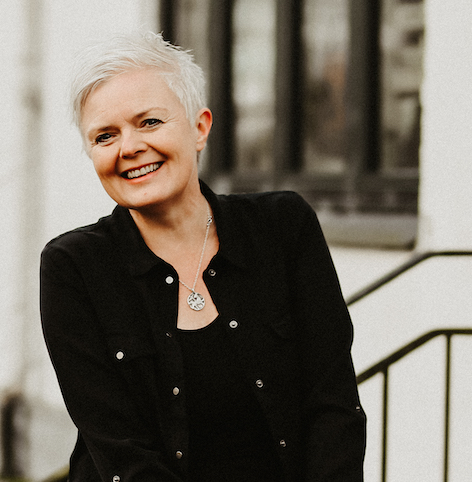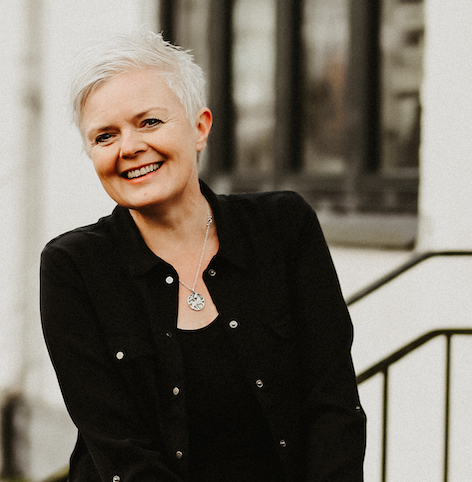How can you love someone that you don’t even know? In many ways I find the idea of “loving the stranger” a rather bizarre concept. In other words, love precedes knowledge. Of course, love at first sight does happen, however normally knowledge and understanding precedes. The stranger must first be known, and cease being a stranger, before qualifying for one’s affection.
For us introverts, this sounds even more painful. To be honest, we are not exactly looking for new people to love or deal with in our lives. This is me trying to be funny, but there is a level of truth to it. Do we really have to love strangers, when it is hard enough to love the familiar ones?
As always, to have our values straight, – let’s start with God, not our own preferences.
I love how Eugene Petterson words Proverbs 1:7 in The Message:
“Start with God – the first step in learning is bowing down to God; only fools thumb their noses at such wisdom and learning.” I think of it as a bowing to his word – not my way, but his.
The Bible contains many passages that emphasize the importance of loving and caring for strangers or foreigners. You will see a few of them a bit further on.
The Greek word philoxenia translates to “friend of the stranger” or even “love of the stranger”, – it is love aimed at the stranger. Philoxenia is most often translated as ‘hospitality’ in the New Testament
What does “Loving the Stranger” have to do with hospitality? Everything, actually!
The concept of hospitality flips the order. Love precedes knowledge. One doesn’t need to know a person to welcome and love them, and one truly gets to know another person by first loving them.
The concept of loving the stranger in the Old Testament is not mainly a sentimental feeling, it entails a tangible, lived out commitment to actively promote the well-being of the stranger. It must look like something.
Most of the times it is mentioned in the Bible, ‘philoxenia’ is used with ‘imperative force’, meaning it is something we must do and without grumbling, according to 1. Peter 4:9 (NIV).
“Offer hospitality (philoxenos: lover of hospitality) to one another without grumbling.”
The verses below, and many others, highlight the importance of welcoming and showing love to strangers, emphasising empathy and compassion for those who may be different or unfamiliar to us.
“The foreigner residing among you must be treated as your native-born. Love them as yourself, for you were foreigners in Egypt. I am the LORD your God.” (Lev. 19:34 NIV)
In Matthew 25:35-36 (NIV) Jesus is even offering a list of practical examples of how to practice the type of hospitality and welcome that he is after:
“For I was hungry and you gave me something to eat,
I was thirsty and you gave me something to drink,
I was a stranger and you invited me in,
I needed clothes and you clothed me,
I was sick and you looked after me,
I was in prison and you came to visit me.”
To dive in a bit deeper, we must look at the two parts of Hebrews 13:1-2 (NIV)
“Keep on loving one another as brothers and sisters. Do not forget to show hospitality to strangers (philoxenia), for by so doing some people have shown hospitality to angels without knowing it.”
As believers, we are told to demonstrate brotherly love, by showing hospitality to our brother, sister, parents, extended family and friends. That part is not too hard. I just had a friend visit for a few days. We had a fun and relaxing time. Good talks, good food, good laughs. Easy! Offering her hospitality is a breeze. I know what she likes, – strong coffee in the morning and all.
Then we come to the second and more demanding part, “Do not forget to show hospitality to strangers”. This part can be plain messy and very challenging.
A pastor to immigrants in the heart of Copenhagen voiced it like this: “It (his work) has for me, been an exercise in allowing oneself to be delayed by people who got in the way…who initially were disruptive elements and not part of the agendas.”
When the war broke out in Ukraine two years ago, we ended up welcoming refugees to the base where I live. It has been rich, fun, wonderful, and blessed, but also humbling, messy, noisy, frustrating and more. But what a glorious learning curve it has been.
Many ministries in Europe have been involved in beautiful acts of kindness toward refugees, and in other ways. Loving the stranger makes us better people I believe.
Here, perhaps the most famous biblical text regarding strangers and refugees applies:
He [The Lord] defends the cause of the fatherless and the widow, and loves the foreigner residing among you, giving them food and clothing. And you are to love those who are foreigners, for you yourselves were foreigners in Egypt.(Deut. 10:18-19 NIV)
We are not all working with refugees and foreigners, but we all meet people that are strangers to us.
How do I see and meet people?
The more I have considered this topic, the more I believe it boils down to how I see people.
How I let myself be welcomed by God and feel at home with him, enables me to also welcome others to a place where they can feel at home with me.
This hospitality, the blessing of the stranger, is linked to a central part of the Christian understanding of God. It is believed to be the greatest Christian virtue, and even the root of evangelism itself. It makes sense, doesn’t it. God welcomes us, we welcome others.
Hospitality and Loving the Stranger is personal
Martin Buber, an Austrian-Israeli and Jewish philosopher, best known for his philosophy of dialogue said, there are two kinds of relationships:
“I it” or “I thou”-impersonal or personal.
I can easily recognise if I am being met by an “I – it doctor“ – who treats me as an object or if it is an “I-thou doctor” seeing me as a person.
Hospitality involves both extending kindness to others and being receptive when others offer it to us. It is a constant flow of “I-thou” giving and receiving.
Turkish grandmother
Last summer I had a fun, or heartwarming encounter on a ferry. I boarded a bit late, with most seats occupied. Finally I spotted a seat next to an old Turkish grandmother. From the number of bags, I could tell there were more people in her company, so I was about to move on, when her eyes caught mine and she motioned with her hands to the empty chair next to her. I gladly accepted her welcome, and sat down. Later she accepted my piece of chocolate. Shortly after her son and grandchild came back from the shop, loaded with goodies, by then I could scoot over, to offer them a seat (most likely their original seat). They accepted my welcome. A bit later I gladly trusted my luggage, computer and all, in their care, while I headed for the bathroom. They were no longer strangers, but felt a stranger’s love for them.
Nice legs
Another summer story, I know, because I was wearing shorts. I was on my way home from a visit at my moms nursing home, needing to stop for groceries. I was tired, focused, and trying to not have eye contact with anyone in fear of small talk (NB: introverts get ultra introverted when tired). I skipped quickly through the shop and made it to the checkout counter in record time. As I was packing my groceries, the lady next in line approached me. I remember thinking, oh no, please don’t talk to me. It was an elderly lady with the sweetest smile and very red hair, she grabbed my arm and said “excuse me, I just wanted to tell you, – you have really pretty legs, – even in sandals – not like me, I have elephant all the way down.”
I thanked her, we laughed, and I smiled all the way home.
What an act of generous love from this stranger.
She could have kept her thoughts to herself, but she was generous, and confident enough to offer me a stranger’s love. I came into the store tired and Eeyore-ish and left laughing and with pretty legs.
This encounter with the lady challenged me to be more generous with my compliments, even to strangers. If an introvert can do it, it is possible for anyone.
How do you approach a person you don’t know?
Do you meet the stranger with reservation, mistrust, or fear? Or with curiosity and interest, trusting that something good will come out of the encounter?
It is in the encounter with the other, that we also meet ourselves.
Tove Kirkebye Poulsen, a native Dane living in Denmark. Staffed with YWAM since 1992 in various capacities and in various locations. My vision and passion is to see Europe come back home, rediscovering her Christian roots. Therefore I serve on the European leadership team, work with U of N and ELLC and teach, preach, garden, laugh, kayak, enjoy the outdoors. to my organic world, where faith, community and nature converge perfectly.




